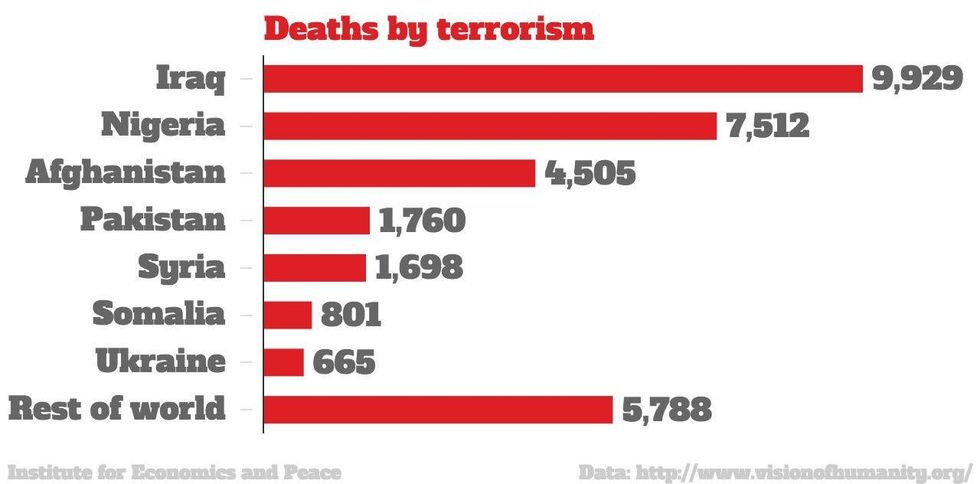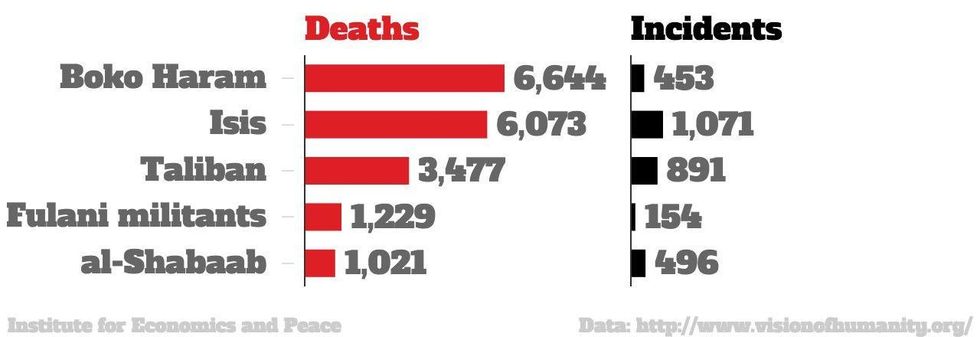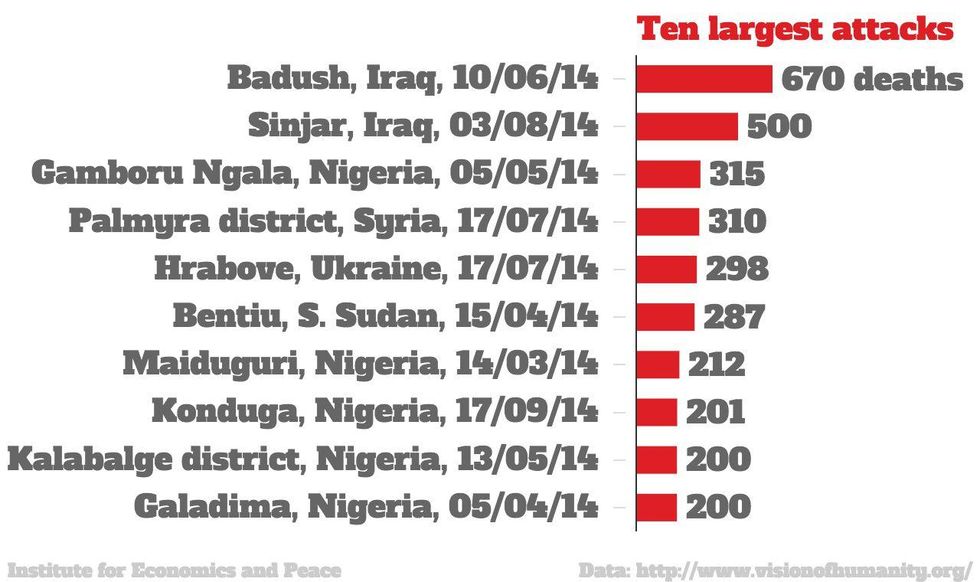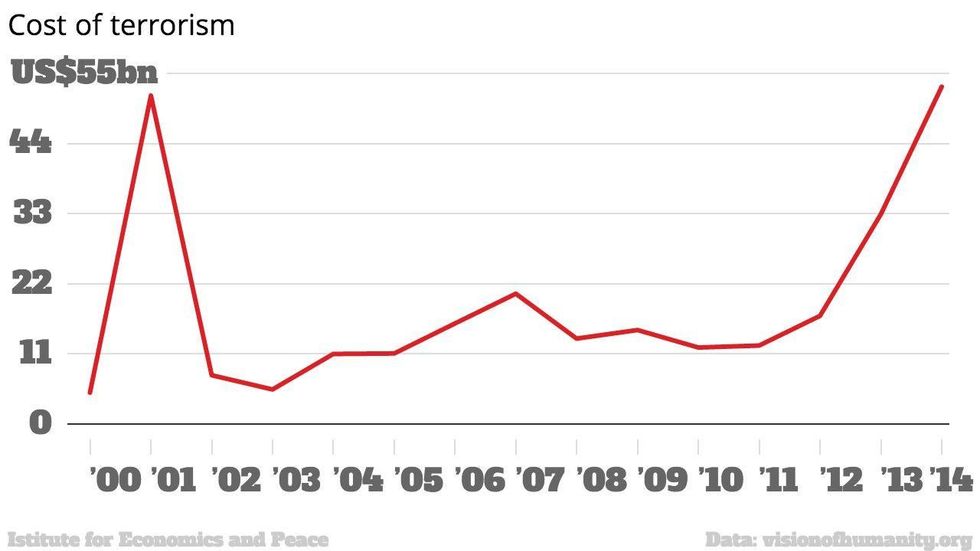News
Louis Dor
Nov 17, 2015
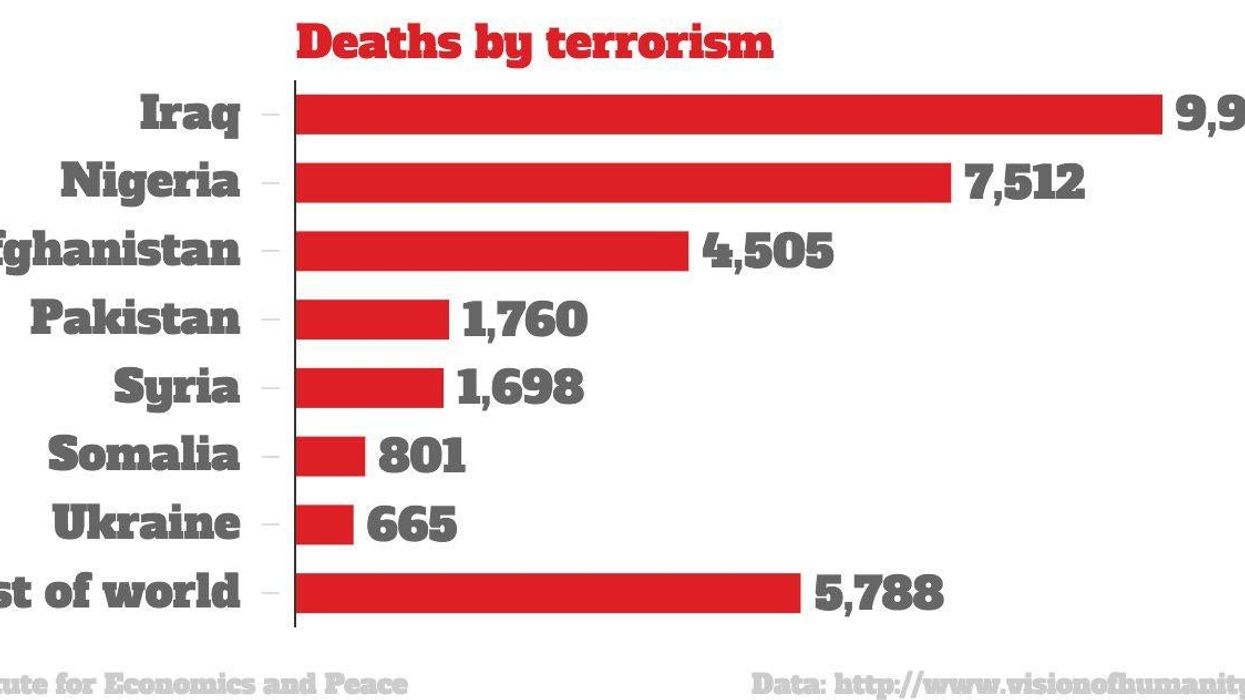
The Global Terrorism Index has shown the largest ever yearly increase in people killed by terrorism occurred in 2014.
The index, produced by the Institute for Economics and Peace, found that 32,658 people were killed by terrorism in 2014, compared to 18,111 in 2013, an increase largely attributable to Isis and Boko Haram, who were responsible for 51 per cent of all claimed global fatalities in 2014.
While the report shows that the majority of violence is conducted in a cluster of countries (Iraq and Nigeria accounted for a majority of deaths by terrorism in 2014), the spread of countries affected by terrorism is also increasing.
Steve Killelea, executive chairman of the Institute for Economics and Peace, told i100.co.uk:
I think the main takeaway from the report is how much terrorism is actually increasing, that’s both in the intensity of it and the the breadth of it as well.
If we look at last year, it’s an 80 per cent increase in deaths from terrorism, from 18,000 to about 32,000. More staggering is the number of countries that have suffered over 500 deaths, up 120 per cent from five countries to 11.
I think the other thing we can see, this is somewhat epitomised by the massacre in Paris on the weekend, is that the terrorist groups are targeting civilians much more so.
While the overall increase in terrorist deaths was 80 per cent, the deaths among private citizens were up over 170 per cent.
If you look at Boko Haram, their deaths increased by a staggering 300 per cent for year on year.
Boko Haram were responsible for the most deaths in 2014, followed by Isis, recording the highest number of deaths per attack.
Killelea told i100.co.uk:
There are a number of reasons for this increase, obviously they’re gaining momentum. The groups are becoming larger.
If we look at the different tactics used by the two, Boko Haram predominately use automatic weapons, whereas with Isis it’s mainly bombings. Certainly, attacks on the general public are what create the most fear.
The institute estimates that 25,000 fighters have travelled to join Isis since 2011, 7,000 of which left in the first six months of 2015, showing the rate at which foreign fighters are joining is not decreasing.
Ninety-two per cent of all terrorist deaths occur in countries which have ongoing conflict and the countries most affected by terrorism also are the largest sources of refugees.
Steve Killelea told i100.co.uk:
To some extent, coming back and addressing the underlying causes of some of these conflicts go a long way to rectifying the current terrorist threat.
Without a doubt I think this is the most important response, especially with regards to Syria. There are a number of conflicts there, ‘sorting’ Syria out won’t solve Nigeria or Libya, nor necessarily Yemen. But if we look at the crux of the problem, particularly as a threat to the West, it really is coming from Isis.
In addition, the report noted links between the ongoing refugee crisis and terrorism, as countries are affected by violence and plunged into further economic issues.
The report estimated the global cost of terrorism to be $53 billion, matching levels around 9/11.
Killelea told i100.co.uk:
Lots of the other costs which come other than what we’ve calculated, so that $53 billion is pretty conservative, and consists of the injuries, the cost of lifetime earnings for those which are killed and property damage, so there certainly is a flow-on effect such as increased internal security costs, restrictions on the movements of people and other such things.
One of the strongest factors for the success of Europe is the ability to move freely between the borders in the EU. Any restrictions on that will affect the commerce and trade and then come back and affect the economy.
We need to get adequate responses, we need to get better internal security mechanisms in place, but in doing so we should be conscious of the effects they might have on the economy.
More: Beirut, Baghdad and Paris: how 24 hours of Isis terror unfolded around the world
Top 100
The Conversation (0)
